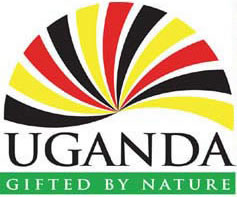Getting around Uganda has never been easier – flexibility exists in use of private or public transport, with the improved transport network and extended communication facilities to even the remotest National Parks.
Traveling in Uganda is a true adventure. There are several ways to get around, and the option you choose will depend upon your time constraints and your budget. Travelling by road is the most accessible and cheapest way to travel, and public transport connects all major locations, and ventures far off the beaten track. For those short of time, domestic flights are available to many of the national parks.
Tour Operators and Public Transportation
Buses, taxis, VIP vans and several touring trucks operated by individual tour operators are available to help travelers reach their destinations. Motorcycle taxis, known as boda-bodas, can always be used for short distances. Safety can be a concern so its not recommended to travel by boda-boda without a helmet.
Self Drive
Self-drive options are best left for return visitors to the country and more seasoned travelers who are accustomed to driving in a variety of road conditions. You may find you are more comfortable leaving the driving up to a local driver guide who will also give you an interpretive commentary while you enjoy the scenic view.
Domestic Flights
Eagle Air operate the following flights between Kampala and the national parks:
Scheduled Flights
Murchison Falls National Park – Pakuba Airstrip (daily)
Quick Travel Tips
Dos and Don’ts:
Uganda is rightly called the Pearl of Africa, the people are friendly and most parts of the country are trouble free and can be visited without problems. However, although Uganda claims the lowest crime rate in East Africa, there is sometimes the exception. A few simple precautions will help you ensure that your visit is trouble free. For your own peace of mind it is advisable that you follow the following simple guidelines.
* Do not carry large amounts of cash with you or leave it in your hotel room.
* Do not leave your valuables or any luggage exposed in the back of your car or on the roof.
* Camp only on approved sites and never in secluded areas.
* Watch your handbag when shopping or in crowded streets, restaurants or pubs.
* Park in controlled parking areas and always lock your car.
* When visiting tourist sites do not wander off the trail or the environs of the site unless you are sure you know where you are going.
About Electricity
Uganda uses 240 volts. 3- Pin (square) sockets. It is recommended that you bring your own adaptor. Most hotels, lodges or camps can make arrangements for recharging batteries. Please ask us on booking if you have specific requirements.
Telephone/Internet:
International telephone communication is good from Kampala but more difficult in some rural areas. Uganda has a good mobile phone network throughout most of the country and local SIM cards can be purchased throughout the country. International roaming facilities are available.
Internet services are available in Kampala through internet cafes and most major towns will have access, although the quality and speed of the connection varies.
All of our drivers/guides have cell phones and maintain contact with the head office throughout the safaris. Airtime can be purchased for your use or the driver/guides’ mobile phones if necessary.
Currency used:
The unit of currency is the Uganda shilling, printed in denominations of Ush50,000, 20,000, 10,000, 5,000, 2,000, 1,000 notes and Ush500, 200, 100 and 50 coins. The US dollar is traditionally the hard currency of preference, but Euro and Pound Sterling are also widely accepted. Hard currency cash can be changed for local currency at banks and private bureaux de change in all large towns, but travelers cheques are not widely accepted outside Kampala. Local currency can be drawn against Visa and other major credit cards at selected ATMs in Kampala, at Entebbe International Airport, and in a few other large towns.
Credit cards:
AMEX, VISA and MASTER CARD may be accepted at a few choice establishments in Kampala and some up-country hotels and lodges. Kindly note that credit cards are not widely accepted and most organizations reserve the right to levy a surcharge on credit card transactions, usually 7-10% on top of the original cost.
Begging/Donations:
We do not recommend that clients give money to beggars or street children as this only lends to the culture of begging and dependency. Donations can be made to established international and local charities that work with the homeless, street children or orphans.
We can arrange visits to local projects or institutions on request. If personal donations are preferred, we would suggest exercise books, pens or pencils as useful gifts.
Gratuities
Ugandans tip according to the level of service and there are no fixed or assumed rates. Culturally, people may not feel it appropriate to outwardly show their appreciation for money given, however salaries are generally low in Uganda compared to the neighboring tourist destination and all tips will be greatly appreciated.
On average you can tip between 5-10% in restaurants, $5-10 USD per day, per client for safari driver and guides; and $5 USD-10 per client, per day for rangers guide; $5 USD per day for porters on mountaineering and hiking safaris and $3-5 USD for forest walk guides.
Tips are very personal and this is only a guide. Feel free to ask management for advice.
Clothing:
Light summer clothing supplemented by a sweater or jacket should be sufficient all year round for Uganda. In the hilly and mountainous areas, waterproof jackets or ponchos, strong water proof walking/ hiking boots and warmer fleece or heavy sweaters will be required in the evening. Informal dress is usual, although Ugandans appreciate modest dressing. Cotton slacks and flat comfortable walking shoes are recommended on safari. Don’t forget to bring a hat and sun protection, along with your swimsuit. Request additional details at the time of booking for specific areas.
